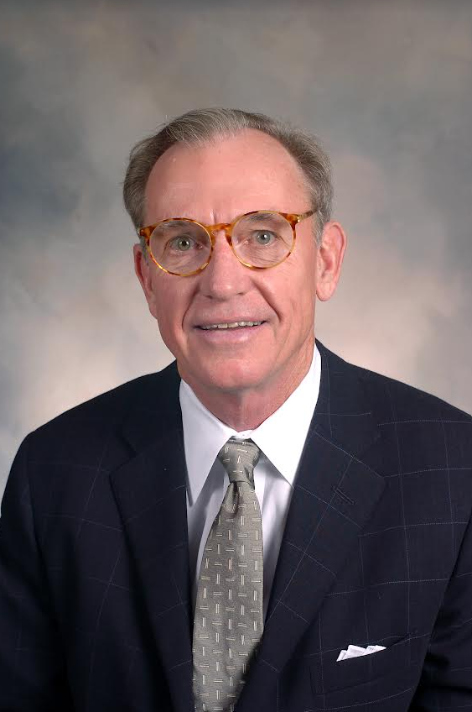Stay interviews are an important means of re-recruiting your workforce – because what attracts your employees is often different from what will keep them. Stay interviews tend to improve engagement and productivity - as well as retention. In this webinar, you will learn how to prepare for, conduct & follow through on stay interviews.
WHY SHOULD YOU ATTEND?
Turnover today is rampant because employees can be choosy with:
- The lowest unemployment rate in 48 years
- For the first time ever in the U.S., there are more job openings than eligible candidates
- Over half of U.S. employees say it is 'somewhat likely' or 'very likely' they can find a job as good as the one they have 50% of employees & 60% of millennials considering new employment opportunities the average tenure for employees in their 20’s being less than 18 months
And turnover is expensive with the cost of replacing a:
- $10-hour employee over $3,000
- $30-50,000 job over $8,000
- Replacing a $100,000 often over $200,000
However, engaged employees when compared to unengaged employees have:
» 65% less turnover in low-turnover organizations and 25% lower turnover in high-turnover organizations
AREA COVERED
#1. The Objective of a Stay Interview
- Making employees feel valued & improving engagement, productivity & retention
- Reinforcing good relationships, forging new ones & helping repair those that are strained
- Re-recruiting talent, causing employees to feel valued & enhancing the relationship between an employee & his/her manager
#2. What Stay Interviews Are
- Employee/supervisor meetings to uncover what is important to each employee
- Means of learning why employees stay might leave & what their supervisor can do to improve their work experience
#3. Why Stay Interviews Are Not
- Performance appraisals
- Conducted only when problems arise
- Personal development
- Causal, random discussions
#4. Initiating a Stay Interview Program
- Who should conduct the interviews & why
- Training managers & leaders
- Setting retention goals
#5. Scheduling & Conducting Stay Interviews
- Frequency & length of each interview
- Preparing for an interview
- The most effective stay interview questions
- How to probe for candid responses
- Handling employee responses for which you don’t have an immediate answer
#6. Following Through on Your Stay Interviews
- Creating & documenting action plans
- Sharing accountability for the follow-through
- Following up on the action plans
- Forecasting future turnover
WHO WILL BENEFIT?
Any Leader, Manager, or Supervisor [HR, Production, Accounting, Sales, IT, etc.] – who wants to increase employee engagement and/or retention.
Turnover today is rampant because employees can be choosy with:
- The lowest unemployment rate in 48 years
- For the first time ever in the U.S., there are more job openings than eligible candidates
- Over half of U.S. employees say it is 'somewhat likely' or 'very likely' they can find a job as good as the one they have 50% of employees & 60% of millennials considering new employment opportunities the average tenure for employees in their 20’s being less than 18 months
And turnover is expensive with the cost of replacing a:
- $10-hour employee over $3,000
- $30-50,000 job over $8,000
- Replacing a $100,000 often over $200,000
However, engaged employees when compared to unengaged employees have:
» 65% less turnover in low-turnover organizations and 25% lower turnover in high-turnover organizations
#1. The Objective of a Stay Interview
- Making employees feel valued & improving engagement, productivity & retention
- Reinforcing good relationships, forging new ones & helping repair those that are strained
- Re-recruiting talent, causing employees to feel valued & enhancing the relationship between an employee & his/her manager
#2. What Stay Interviews Are
- Employee/supervisor meetings to uncover what is important to each employee
- Means of learning why employees stay might leave & what their supervisor can do to improve their work experience
#3. Why Stay Interviews Are Not
- Performance appraisals
- Conducted only when problems arise
- Personal development
- Causal, random discussions
#4. Initiating a Stay Interview Program
- Who should conduct the interviews & why
- Training managers & leaders
- Setting retention goals
#5. Scheduling & Conducting Stay Interviews
- Frequency & length of each interview
- Preparing for an interview
- The most effective stay interview questions
- How to probe for candid responses
- Handling employee responses for which you don’t have an immediate answer
#6. Following Through on Your Stay Interviews
- Creating & documenting action plans
- Sharing accountability for the follow-through
- Following up on the action plans
- Forecasting future turnover
Any Leader, Manager, or Supervisor [HR, Production, Accounting, Sales, IT, etc.] – who wants to increase employee engagement and/or retention.

